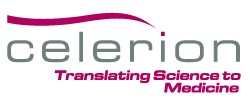N-Nitrosamine impurity findings in marketed formulations of rifampin have disrupted drug development. As a strong cytochrome P450 3A4 (CYP3A4) inducer, rifampin was regularly co-administered with investigational products during pharmacokinetic drug-drug interaction studies. However, due to recent impurity issues, its application in these studies has been suspended in both the US and EU.
This webinar will examine the root cause of rifampin impurity and describe the industry and regulatory response to this issue. In addition, the featured speakers will address alternative approaches and CYP3A inducers to encourage the continuation of drug-drug interaction studies and drug development.
N-Nitrosamines are a class of chemicals recognized as a “cohort of concern” due to their mutagenic and carcinogenic potential. Typically, levels above an acceptable intake limit may lead to a probable or possible risk of cancer in humans. Rifampin capsules were found to contain 1-methyl-4-nitrosopiperazine (MNP) above the acceptable intake limit of 0.16 ppm. However, it’s important to note that nitrosamines are not limited to drug products, and low levels can be found in drinking water, processed meats and tobacco exposure. Therefore, in theory, a diet low in nitrosamines could offset any potential exposure during rifampin drug-drug interaction studies.
Alternatively, other CYP3A inducers could be applied in these studies. While the US Food and Drug Administration (FDA) does provide a list of several candidates, in practice, many of these substitutes are not ideal for healthy volunteer studies due to black-box warnings (eg. carbamazepine), risk of serious adverse events (eg. apalutamide, enzalutamide, mitotane), or variation in response (St John’s wort).
The speakers propose overcoming rifampin impurity challenges with the use of phenytoin for healthy volunteer pharmacokinetic drug-drug interaction studies.
Register to learn about optimizing study design, anticipated effect size and common adverse events healthy volunteers may experience with phenytoin administration during drug-drug interaction studies.
Speakers

Aernout van Haarst, PhD, Director of Scientific Affairs, Celerion
Aernout van Haarst is a subject matter expert in Celerion’s respiratory research team and works closely with external experts in the field of pulmonology to support drug development programs of Celerion’s clients. Aernout joined Celerion in 2015 and has over 25 years of drug development experience at biotechnology companies and CROs. He received his PhD from the School of Medicine at Leiden University and is qualified as a Clinical Pharmacologist in The Netherlands.

Sabina Paglialunga, PhD, Director of Scientific Affairs, Celerion
Sabina Paglialunga serves as a subject matter expert in metabolic diseases such as non-alcoholic steatohepatitis (NASH) and type 2 diabetes, where she has published extensively in these areas. She joined Celerion in 2015 and has held several roles with increasing responsibility. Sabina received her PhD in biochemistry from McGill University, Canada and her training also includes three postdoctoral fellowships.
Who Should Attend?
- Clinical Operations
- Clinical Development
- Clinical Pharmacology
- Pharmacokinetics
- Project Managers
- Site Management and Monitoring
- Site Engagement Leaders
- Clinical Scientists
- Clinical Pharmacists
- Regulatory Affairs
What You Will Learn
Attendees will learn:
- The root cause of rifampin N-Nitrosamine impurity and steps underway to rectify the issue
- Alternative CYP3A inducers or approaches to consider for a drug-drug interaction study in healthy volunteers
- Phenytoin drug-drug interaction case studies — what worked well
Xtalks Partner
Celerion
Celerion, a global leader in early clinical research services offers a unique combination of medical expertise, clinical operations experience and scientific excellence that gives our clients the confidence to make fast, accurate decisions about their drug development path. For fifty years, Celerion has leveraged the latest operational concepts and technologies to execute safety/tolerability, pharmacokinetic and pharmacodynamics studies in highly controlled clinic environments. These include first-in-human dose escalation, drug-drug interaction, cardiac safety, bioequivalence and bioavailability, metabolism and excretion studies as well as pharmacokinetic evaluations in patients with impaired renal or hepatic function. Celerion offers feasibility, data management, biostatistics, clinical monitoring and bioanalytical services. Our founding mission is to help our clients get their drugs to market quickly, so that they touch the lives of our family, friends and people in need around the world. For more information, please visit www.celerion.com.
You Must Login To Register for this Free Webinar
Already have an account? LOGIN HERE. If you don’t have an account you need to create a free account.
Create Account





